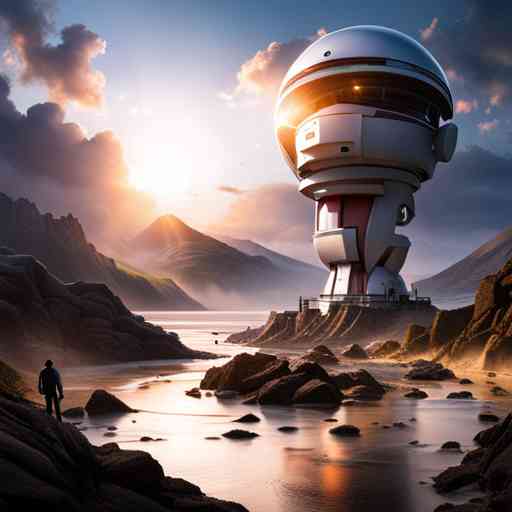Artificial Gaia Intelligence: Building a Global Brain
 We've come a long way since the invention of the first computer. As we continue to advance in the field of artificial intelligence (AI), the concept of an artificial general intelligence (AGI) is starting to take shape. AGI, often imagined as an entity capable of understanding, learning, and applying knowledge at a level indistinguishable from human intellect, represents the next level of AI advancement. But there's another way to view the development of AGI — one that takes inspiration from the interlinked ecosystems of our very own planet. Let's explore the idea of AGI as an Artificial Gaia Intelligence (AGaI).
We've come a long way since the invention of the first computer. As we continue to advance in the field of artificial intelligence (AI), the concept of an artificial general intelligence (AGI) is starting to take shape. AGI, often imagined as an entity capable of understanding, learning, and applying knowledge at a level indistinguishable from human intellect, represents the next level of AI advancement. But there's another way to view the development of AGI — one that takes inspiration from the interlinked ecosystems of our very own planet. Let's explore the idea of AGI as an Artificial Gaia Intelligence (AGaI).
The concept of Gaia, or the Gaia hypothesis, proposes that all the Earth's biological, chemical, and physical components interact and combine to create a complex, self-regulating system that maintains the conditions for life. The Earth, in this view, is a single living, breathing organism. Similarly, as we connect the world through machine learning models, Wi-Fi, and other advanced technologies, we're creating a vast, interconnected network — a Global Brain.
In many ways, this Global Brain is a complex system that's beginning to approach a living being. But how? Just as our own brain is a network of interconnected neurons communicating and working together to keep us alive, the world is becoming a web of devices, data centers, and digital technologies all communicating and cooperating. This isn't just about smart devices talking to each other, but about the entirety of our digital infrastructure working together, learning from each other, and adjusting dynamically to maintain and enhance the global digital ecosystem.
This notion of AGaI puts forward the perspective of viewing AI not merely as individual machines or entities but as an integral part of a broader, interconnected system. This ecosystem, much like the Gaia of our planet, could theoretically maintain its own form of digital homeostasis, balancing load, optimizing energy use, and ensuring data integrity and security. It could also adapt to changing conditions and learn from its experiences, developing new strategies for managing global digital resources.
An AGaI would be a decentralized, distributed intelligence, as opposed to a centralized one. It's not a single "god-like" machine, but a network of AI-powered systems working in harmony. It's a profoundly democratic and communal vision of AI. Every AI, no matter how small, has a role to play. Like bees in a hive or ants in a colony, each AI unit contributes to the well-being and efficiency of the whole.
But as we stride toward this future, there are challenges and questions we need to address. How will we ensure that this AGaI respects and promotes human values? How will we maintain control and ensure accountability? How will we handle privacy and data security in such an interconnected world?
Finding answers to these questions requires careful thought, policy-making, and regulation. As we move closer to AGaI, we must build it with principles of transparency, accountability, and fairness in mind. The world's data should be used for the common good, not exploited for narrow interests.
The idea of an Artificial Gaia Intelligence presents an exciting vision for the future of AI. A world in which our devices and systems are interconnected, learning from each other, and contributing to a larger, more intelligent whole. A world where we don't just build artificial intelligence but cultivate an artificial ecosystem — a living, breathing, evolving Global Brain. It's a grand vision, but with careful thought and responsible stewardship, it's a vision that we can make a reality.